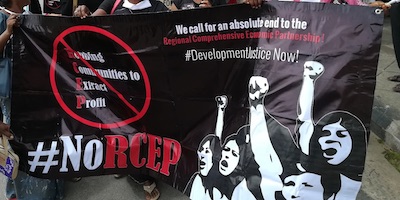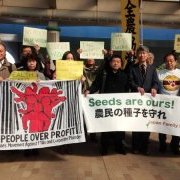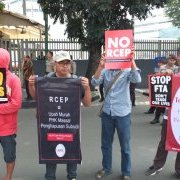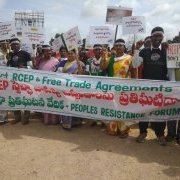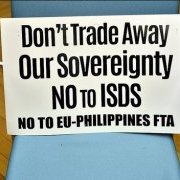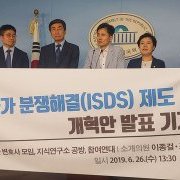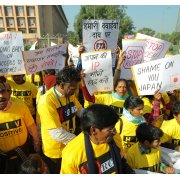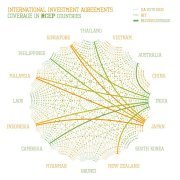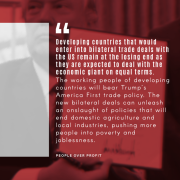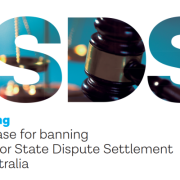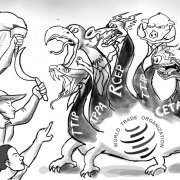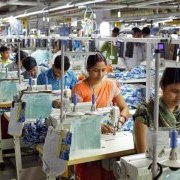7-Mar-2017
People Over Profit
People Over Profit Statement on the 17th Round of Negotiations of the Regional Comprehensive Economic Partnership (RCEP) in Kobe, Japan 27 Feb-3 March 2017
17-Sep-2019
The Conversation
Malaysia’s trade minister Datuk Darell Leiking revealed that Malaysia and each of the other 15 parties to the RCEP negotiations had agreed to exclude ISDS provisions from the deal.
28-Jul-2017
People’s Forum against FTAs and RCEP
“Tell us at least now who gains from RCEP,” People’s Forum challenges the Indian government as the 19th round of RCEP negotiations comes to an end
16-Dec-2016
Friends of the Earth International
RCEP also includes the controversial Investor-State Dispute Settlement mechanism (ISDS), which is facing increasing public criticism and scrutiny worldwide.
19-Apr-2017
Economic Times
Free trade agreements tend to treat intellectual property as an investment made by investor corporations, allowing private investment disputes to be raised against the host country.
3-May-2018
Friends of the Earth Australia
The ISDS system impedes on national sovereignty to the benefit of corporations, yet places no obligations on investors to behave responsibly, creating an asymmetric system that gives multinationals the same rights as sovereign states.
12-Jan-2017
Third World Resurgence
In highlighting that the drafts of many of its key chapters are substantially similar to those of the TPP, Sanya Reid Smith warns that the RCEP may end up as a replica of the former.



